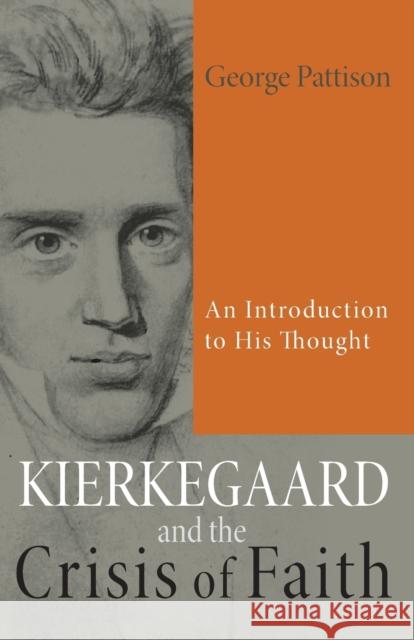Kierkegaard and the Crisis of Faith: An Introduction to His Thought » książka
Kierkegaard and the Crisis of Faith: An Introduction to His Thought
ISBN-13: 9781625645029 / Angielski / Miękka / 2013 / 160 str.
The standing of the Danish philosopher and religious thinker Soren Kierkegaard has gone up in recent years. Yet because he regarded communication as being as much about self-concealment as about self-revelation, he can still seem a forbidding and difficult figure. The deliberate ambiguity of Kierkegaard, in which he set out to repel as much as to attract his readers, is here explored by George Pattison, who gives full attention to the scandalous element of the philosopher's work, and does not shy away from his ambivalent attitudes towards sexuality, the body, marriage, and the family. This book is unlike other nontechnical introductions to Kierkegaard in that it does not seek to promote one part of Kierkegaard's writings over others, but offers, rather, a perspective on his life and output as a whole. That Kierkegaard grappled in his own age with many of the problems which beset our own, and frequently offered fascinating responses to those problems, is a major incentive to examine his thought today. By placing Kierkegaard in the context of a "crisis of faith" and making valuable connections between events in the philosopher's life and the development of his thinking, the author of this timely, readable, and attractively written study has produced a book which should be of interest to a wide nonspecialist readership. "Dr. Pattison does not try to conceal or play down aspects of his subject's personality that might appear unsympathetic--or worse--to modern ears, and he manages effectively and perspicaciously to drew together the complex threads of Kierkegaard's career. The clear and informative presentation which is given of the philosopher's life in its historical and cultural setting culminates in a carefully balanced but by no means uncritical assessment of the significance of his religious ideas at the present time." --Dr. Patrick Gardiner, Magdalene College, Oxford George Pattison is Lady Margaret Professor of Divinity at the University of Oxford and has written extensively on Kierkegaard and modern religious thought. His most recent books are Kierkegaard and the Theology of the Nineteenth Century and Kierkegaard and the Quest for Unambiguous Life."
The standing of the Danish philosopher and religious thinker Søren Kierkegaard has gone up in recent years. Yet because he regarded communication as being as much about self-concealment as about self-revelation, he can still seem a forbidding and difficult figure. The deliberate ambiguity of Kierkegaard, in which he set out to repel as much as to attract his readers, is here explored by George Pattison, who gives full attention to the scandalous element of the philosophers work, and does not shy away from his ambivalent attitudes towards sexuality, the body, marriage, and the family.This book is unlike other nontechnical introductions to Kierkegaard in that it does not seek to promote one part of Kierkegaards writings over others, but offers, rather, a perspective on his life and output as a whole. That Kierkegaard grappled in his own age with many of the problems which beset our own, and frequently offered fascinating responses to those problems, is a major incentive to examine his thought today. By placing Kierkegaard in the context of a "crisis of faith" and making valuable connections between events in the philosophers life and the development of his thinking, the author of this timely, readable, and attractively written study has produced a book which should be of interest to a wide nonspecialist readership."Dr. Pattison does not try to conceal or play down aspects of his subjects personality that might appear unsympathetic--or worse--to modern ears, and he manages effectively and perspicaciously to drew together the complex threads of Kierkegaards career. The clear and informative presentation which is given of the philosophers life in its historical and cultural setting culminates in a carefully balanced but by no means uncritical assessment of the significance of his religious ideas at the present time."--Dr. Patrick Gardiner, Magdalene College, OxfordGeorge Pattison is Lady Margaret Professor of Divinity at the University of Oxford and has written extensively on Kierkegaard and modern religious thought. His most recent books are Kierkegaard and the Theology of the Nineteenth Century and Kierkegaard and the Quest for Unambiguous Life.











